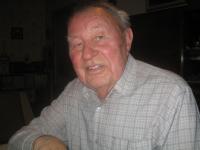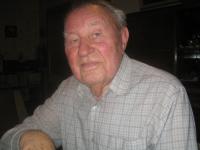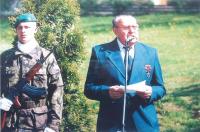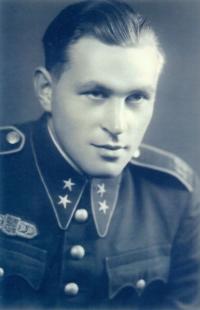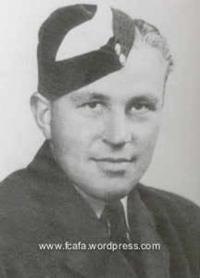Mrázek, Šikola, Fajtl, Peřina – these guys were heroes, but I didn‘t fire a single shot

Stáhnout obrázek
Zdeněk Neruda, a retired Colonel, was born on 12 July, 1920, in Brno, in what was then Czechoslovakia. After the creation of the First Czechoslovak Republic, his father was sent to Slovakia and Zdeněk Neruda thus attended elementary school in Nové Město and grammar school in Spišská Nová Ves. The family returned to Bohemia in 1935 and settled in Jablonec nad Nisou, where Zdeněk Neruda decided that he would start working instead of completing his grammar-school studies. He got a job at the Baťa shoe-making and textile company in Ústí nad Orlicí and then in Jablonec. In 1938, the Czech population was forced to leave the borderlands and the family moved to Sedmpán and then to Uhlířské Janovicw in the Benešovsko region. After joining the government army, Zdeněk Neruda was assigned to the 1st Company of cyclists of the 12th Battalion in Přerov, where he also completed his secondary education. The government troops were then sent to Italy to guard the local railways which frequently became a target for the guerrillas. However, the soldiers of the government army used their contact with the guerrillas for deserting their units and indeed, a portion of them changed sides and joined the guerillas. With the guerrillas, they got to the Swiss border, where they managed to persuade the local border guard to let them enter the country. They were placed in internment camps in Brig, Olten and Kronbühl. By the end of 1944, the former soldiers of the government army were incorporated into the foreign army after they had been transferred via Switzerland, France, Italy, Algeria, Gibraltar and the Bay of Biscay to Glasgow, from where they were subsequently moved to Southend-on-Sea in England. After a medical examination in London, they were assigned to various military units. Zdeněk Neruda was selected as a navigator by the RAF but by the time he had completed his military training, the war was already over and Mr. Neruda thus only took his first flight in a Liberator as he flew back to Czechoslovakia in August 1945. In Czechoslovakia, he was demobilized, got married and started to work for an export company in Jablonec nad Nisou. He subsequently worked for a company manufacturing glass jewelry and then in the ironworks. After vetting, he worked as a workman, then as a dispatcher and eventually ended up back in the export company. Currently, Zdeněk Neruda passed away on October , the 5th, 2018
